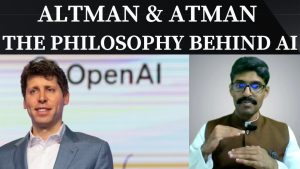The Insider Guide to Careers
Insider information, secrets and tips about getting hired and building careers. For employees and job candidates.
Today, while drinking a cup of coffee, I had a sudden thought about how making coffee is an excellent illustration of how modern companies work. Here are ten learnings for anyone who wants to understand the true nature of the employee-employer relationship.
1) Coffee beans undergo a lot of processing:
When they finish high school, most people have little or none of the skills the workplace needs. Like coffee beans undergoing a lot of fermenting, roasting, and grinding, college students also get some initial flavour of workplace skills during summer internships and academic projects. Learning and mastering the right skills required for the workplace takes a long time – ten to fifteen years. So, patience and hard work are essential for upskilling. If only one were a coffee bean, processing would have been much faster. Remember, we are not!!
2) Not all Coffee beans are the same:
Depending on your background, experiences, education and childhood exposure, some people will always be a better fit for certain companies. Once you enter the workplace, you will find that no two people were ever created equally. A manager is equally dependent on superstars as much as on dependable but possibly average people who can do the grunt work. As far as the employee goes, never try to be like another person. Play to your strengths and play your own long game to get ahead. What worked for somebody else may never work for you.
3) Coffee powder needs hot water:
For the true fragrance of coffee to come out, it needs hot water. Do not be in your safe space in a company if you want to learn. Extend your boundaries, take up new challenges and remember that you end up in hot water. With the right attitude, you can add more value than you thought was possible. You would be surprised at how much you learn and contribute to a challenging project.
4) Coffee needs sugar and milk:
Different people with different skills are required for a team to function properly. Different blends of people bring additional skills to the table, all of which are not always comparable to the skills of the majority. This consequence is a reason why diversity is important. One doesn’t want only coffee powder everywhere; sugar and milk can be equally important for making a good brew.
5) Coffee beans need to be powdered:
Beans are powdered because the consumers cannot consume them directly. Likewise, companies break down tasks and expectations into their constituents and bunch skills to create a job. HR calls this job analysis and skill mapping. Generally, the work is devolved into the lowest common denominator and clubbed into jobs. When coffee beans are powdered, all of them look similar. It also means that all the bean powders are replaceable since there is no difference between one powder and the other.
6) Coffee powder is indistinguishable:
Once you enter a company, you are one among thousands of people, but like how one grain of coffee looks the same as another. Do not expect special treatment. Instead, try to prove your worth by hard work and adding value to the company. Do not assume you will be treated differently because you have a pedigreed background. If you observe carefully, you will find that most people around you are also from similar backgrounds, and you are not very different from the others.
7) Coffee is wasted with a Tea-drinker:
Every company has a different set of expectations. There is no use applying for a company which doesn’t want your skill sets and then feeling sad that you did not make it through the application process. When a company rejects you, it is not always about you. It is equally about them. Do not tie your ego to getting accepted into companies. Company recruitment is not the same as college admissions. They make mistakes all the time. Remember that Larry Fink, one of the most powerful names in Wall Street and Corporate America, was rejected for an entry-level job at his dream company, Goldman Sachs.
8) The best coffee is expensive:
There is no use in coffee beans complaining that all of their kind should be valued equally, in the same way, as all employees will never be treated the same. Every employee will get a different compensation package depending on the unique skills they bring to the table. Like how coffee beans are rated on various parameters like aroma, flavour, aftertaste, balance and other parameters, employees are rated on different skills like people, business and people skills. Every employee has a unique combination of these three types of skills. The purpose of interviews and manager revaluations is to find how each employee rates with respect to people, business and technical skills.
9) Coffee is dangerous for dogs:
There are always highly skilled employees with good technical skills but poor people or toxic leadership skills. Stay clear of hiring these employees, irrespective of how awesome they appear in interviews. For a good company culture to exist, give more importance to people skills than technical skills. The only exception is for individual contributor roles. Employees with lousy people skills become a blocker for the team, frustrate colleagues and make the direct reports quit. The cost of getting brilliant but terrible people can be high. They quickly cause so much collateral damage that, sooner or later, they have to be let go from the company.
10) Coffee connoisseurs are clear about what they want:
Coffee connoisseurs prominently display the ratings for the coffee quality they look for across different parameters. If coffee beans have a brain, they will try to improve in the parameters where they score the least. Job applicants can use this same strategy when applying for jobs. Every job has a Job Description (JD) in which companies list precisely what they seek. If candidates put some effort into identifying the three kinds of skills in the JD, they can customize their resume using the right keywords pulled from the JD. They can even predict the STAR-type behavioural questions, which can be asked during the interview process. A lot of preparation goes into cracking an interview. Don’t sit for an interview without doing a lot of this preliminary spadework.
For more such articles, add me on Linkedin and follow my Newsletter.



